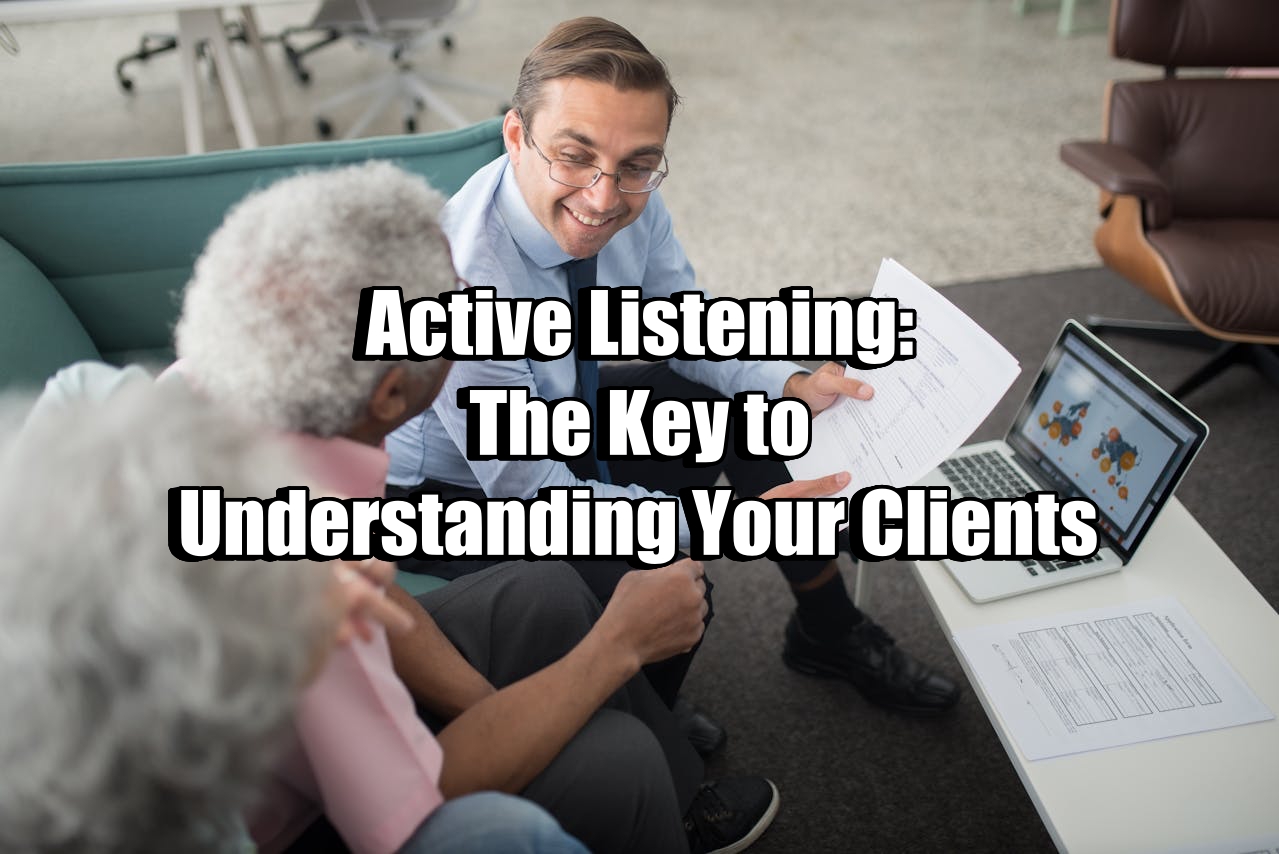Active Listening: The Key to Understanding Your Clients
In today’s hyper-connected world, businesses often compete not just on price or product — but on experience. And at the heart of a great experience lies something deceptively simple: listening. But not just any kind of listening — active listening.
Active listening is more than hearing words. It’s a skill, a discipline, and a commitment to fully understanding the person speaking. For professionals, especially in client-facing roles, this can be a game-changer.
Why Active Listening Matters in Business
Clients don’t always say exactly what they mean. They may describe a surface-level problem while a deeper issue simmers underneath. When you listen actively, you catch not just what they say, but how they say it. Tone, pace, and pauses reveal just as much as content.
Active listening helps you:
✅ Uncover real needs
✅ Build trust and rapport
✅ Reduce misunderstandings
✅ Improve retention and loyalty
✅ Deliver better, more relevant solutions
Key Elements of Active Listening
1. Be Fully Present
Silence distractions — physical and mental. That means putting down your phone and clearing your mind. Give your client your full attention.
2. Reflect and Clarify
Paraphrase what you’ve heard. “So what I’m hearing is…” or “It sounds like you’re saying…” This not only ensures you’re on the same page but shows the client you care about getting it right.
3. Read Between the Lines
Sometimes what’s unsaid is just as important. Look for emotional cues. Is the client frustrated, uncertain, or enthusiastic? These signals offer valuable insight.
4. Ask Open-Ended Questions
Encourage your client to elaborate. Questions like “Can you tell me more about that?” or “What would success look like for you?” open the door to deeper understanding.
5. Avoid Interrupting
Let them finish. Even if you think you have the answer, resist the urge to jump in. Listening is about them — not your next pitch.
From Transactions to Relationships
When clients feel truly heard, something shifts. The dynamic becomes collaborative. You move from being just a service provider to becoming a trusted partner. That’s the foundation of long-term business success.
In industries where products and services may be similar, the ability to listen — really listen — can be your edge.
Practice Makes Perfect
Like any skill, active listening improves with intention and repetition. Start with your next client call. Focus, pause before responding, and reflect back what you’ve heard. Watch how it transforms the conversation.
In a noisy world, silence speaks volumes.
Listening is no longer optional — it’s your superpower.


No responses yet